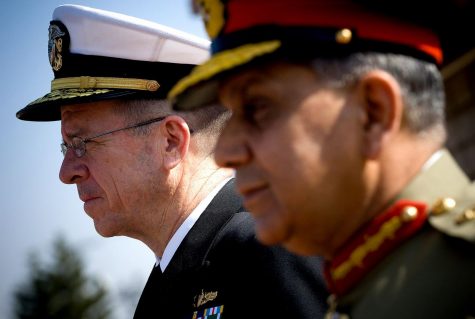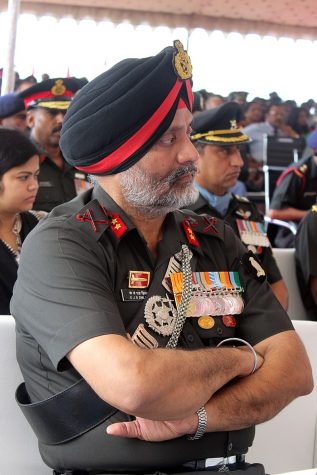Making sense of the situation between India and Pakistan
Tensions between the two countries almost led to a nuclear war.

Pakistani Prime Minister Imran Khan. (Wikimedia Commons)
Over the past weeks, tensions between the nuclear powers of India and Pakistan have reached a high that hasn’t been observed in decades. The two nations have a longstanding history of skirmishes, over deep-seated political and religious differences ever since the formation of Pakistan.
India is led by Prime Minister Narendra Modi and Pakistan has a new Prime Minister, Imran Khan. As India’s Modi is up for re-election in May, both leaders are facing pressure from their respective populations to show strength and not back down. Kashmir is a vast region dividing the two countries that has been a point of great contention and turmoil. Both nations claim to control it fully when in reality, it’s clear that neither have full ownership of the land.
Tensions escalated last month on February 14 when a terrorist attack in Kashmir killed 42 Indian soldiers using a car bomb. India immediately placed blame on Pakistan, and not without reason, since Pakistan has a history of enabling or protecting terrorists in the region. India retaliated by bombing territory in Pakistan which is said to be a training camp for terrorists.
In response, Pakistan shot down an outdated Indian MiG-21 plane that was flying over Pakistani airspace. The pilot, Wing Commander Abhinandan, survived and was captured by Pakistan. Subsequent reports suggested the pilot was beaten and not treated according to military prisoner ethics, with a video surfacing shortly after of the pilot having been visibly cleaned up.

The stakes of this back and forth between the two nations is escalated by the fact that both India and Pakistan are nuclear powers. Thankfully, both countries took careful measures to not escalate the situation irreparably.
Pakistan decided to close its airspace to try and de-escalate, and Prime Minister Kan posted a video speaking directly to the Indian government, warning against further conflict, and stressing the threat of mutual destruction if war did indeed break out. Pakistan also agreed to release the captured Indian pilot and he will be coming home on Friday.
The global community reacted in a seemingly productive and measured manner, with many world powers such as the U.S, U.K, China, Russia, and the UN all urging the two countries to work to remedy the situation. President Trump, at the North Korean summit in Hanoi, gave a press conference on the situation and said that the trajectory of the situation is that of de-escalation.

I find it apt to bring to light the fact that roughly 56 years ago, the world experienced a similar nuclear scare as the world held its breath while two nuclear powers seemed to be on course for certain disaster. This, of course, was the Cuban Missile Crisis.
During that crisis, Kennedy and Khrushchev were embroiled in a Cold War and were likewise facing internal pressure to assert their dominance in foreign dealings. Engaging in ‘tit for tat’ retaliatory tactics, the U.S and the USSR brought the situation to a point incredibly close to all-out war.
Luckily, a nuclear war which undoubtedly would have led to millions of deaths was avoided. It’s interesting to me that residue of that conflict and the Cold War as a whole still echoes in this new India-Pakistan conflict.
The U.S has recently publicly put faith in India as a prominent ally in the region and is relying on the growing power to maintain peace and U.S interests against countries like China. Russia has been open in her backing of Pakistan, leading to an inflated proxy situation similar to the one during the Cuban Missile Crisis.
The events of the last couple of weeks may go into the history books as another instance of a nuclear near-miss and should serve as a reminder of the very real threat that is nuclear annihilation.
Email Vadim at [email protected]









